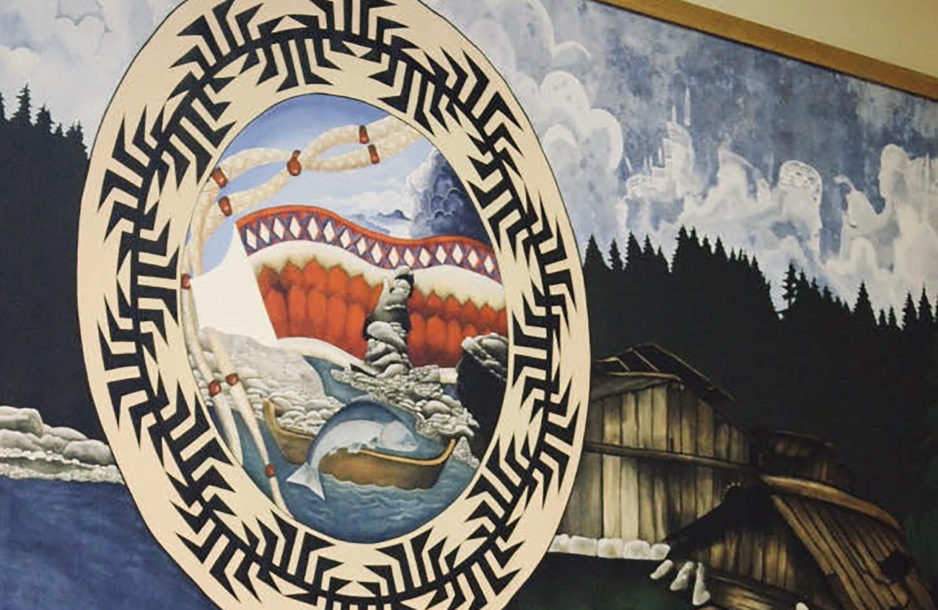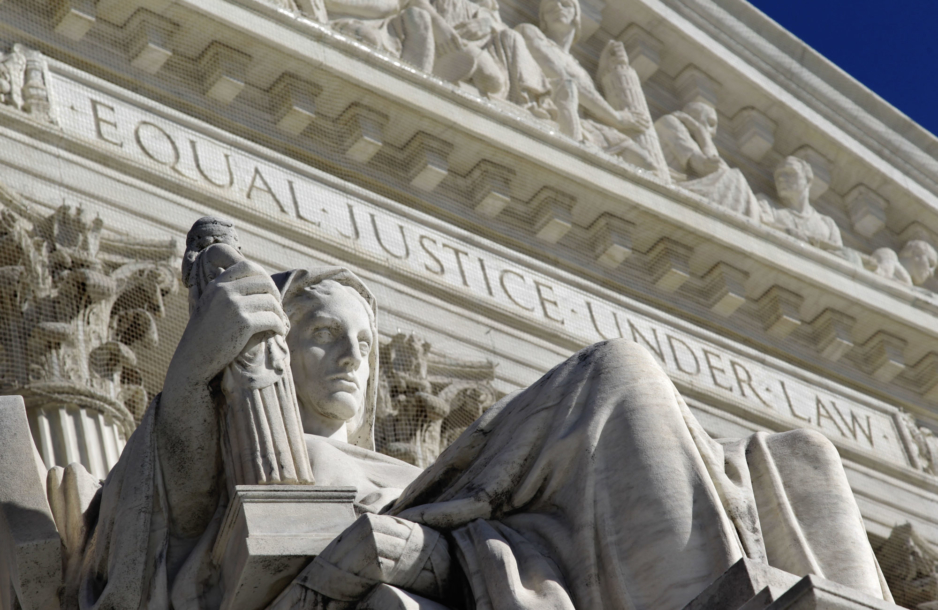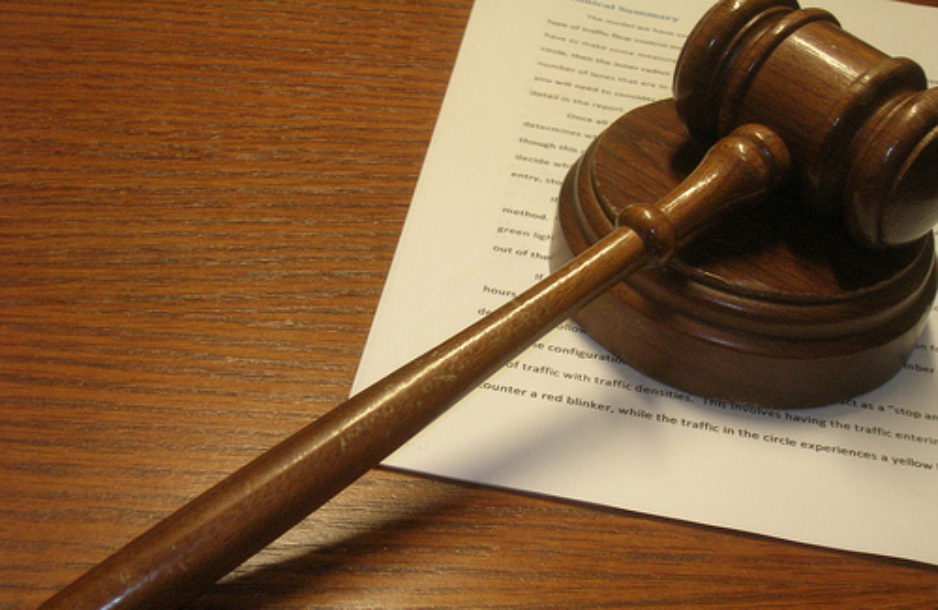Diversity, Equity, & Inclusion Vision
Alumni, students, faculty, and staff have sought to make SLS a more equitable, diverse, and inclusive institution. We recognize, acknowledge, and appreciate their efforts, and are building upon them. This page documents our journey, and will evolve as we do, offering our community transparency into our efforts.
Addressing issues of diversity, equity, and inclusion is not a peripheral objective in legal education. Central to the challenge of constitutional democracy today is understanding how to embrace and leverage our differences as strengths, and how to live together in a pluralistic society where all can thrive.
Lawyers Have a Unique Role to Play
Lawyers occupy leadership positions throughout the business and non-profit sectors, and are disproportionately represented at every level of public office. Moreover, law is the medium through which society resolves differences. We are committed to addressing institutional structures that impede equity for members of our community. Foundational to this work is an understanding, recognition, and respect of and for our differences.
For our students,
For our faculty,
For our staff,
For our alumni,
Rigorous education requires exposure to views and cultures other than one’s own and having one’s opinions and assumptions challenged. Future success requires collaboration from all corners of our community. This work extends across SLS and the university, as articulated in the Mission Statement for Stanford IDEAL (Inclusion, Diversity, Equity & Access in a Learning Environment).
Meeting this charge in today’s world requires creativity, rigor, humility, and accountability. We must set the highest standards for excellence here as in every other area of our mission.
We invite you to learn more about our vision for SLS to become a model for 21st century legal education, and the strategies we will implement to continue preparing our graduates to lead, innovate, and solve problems around the world and across our nation.
Creating Equitable Access
In the Pursuit of a Legal Education
We are dedicated to expanding financial resources for all students, with an emphasis on students from lower income backgrounds, to address socioeconomic inequities that affect the recruitment of students, students’ experience once enrolled, and students’ career decisions.
Financial Access
Stanford Law School is committed to be a place where the best and brightest leaders of tomorrow can study, regardless of their financial means. In 2019, Dean Martinez created an Ad Hoc Committee on Financial Access to identify how we can improve material support for low-income students, and to address socioeconomic inequities that impact these students’ experiences during law school.
Our financial aid packages advance our goal of ensuring broad and equitable access to legal training for students from a wide variety of backgrounds. Our J.D. graduates carry a lower average debt at graduation than all but one of our peer law schools. We guarantee summer funding for all students pursuing public interest work. We have funded a steadily increasing number of post-graduate public interest fellowships over the past decade. And our post-graduate loan repayment assistance program, pioneering when introduced, continues to help students pursue the careers of their dreams without being prisoners to their student loans.
We want to do even better, and our greatness as a law school depends on our ability to do so.
In the summer of 2020, despite significant budget reductions across the school as a result of the pandemic’s impact on revenue, we made a series of immediate, high-impact decisions for the 2020-21 academic year to increase financial support for current students, many of which will carry forward:
- The law school provided an additional $2,500 in scholarship support in 2020-21 to all students receiving need-based loans.
- We created a Covid-19 emergency fund to cover unexpected hardships for students, which will continue as a permanent Opportunity Fund to cover expenses for students on financial aid where financial constraints might otherwise create obstacles in their educational experience. We have also secured access for law students to the university’s emergency grant in aid funds, which were previously not available to our students.
- In 2020 we offered paid summer jobs with our faculty and in our clinics to students whose other summer work was cancelled or shortened due to the pandemic.
- We increased need-based financial aid to respond to students whose financial situation changed as a result of the pandemic.
- We increased the stipend for summer public interest internships this year from $5,800 to $7,000 for the first year and from $7,500 to $8,000 for the second year, and also are increasing the allowance for summer living expenses in the financial aid budget.
- We have increased funding for the pro bono program to ensure that students are not inhibited by out-of-pocket expenses, such as travel. This will continue with the new Deborah L. Rhode Pro Bono Fund, established by the late Professor Rhode in 2020 to support students providing pro bono services to communities in need.
Generous donations from alumni and friends have been vital to our ability to do all of these things. And we continue to explore and implement ways to make a Stanford Law School experience more financially accessible.
Fundraising for financial aid is a top priority. Most of our financial aid comes from our endowment – scholarships given by generations of alumni wanting to give back to the school and provide great opportunities like they had to young people coming behind them. For some time, our financial aid expenditures have increased faster than our financial aid endowment has grown, leaving us with a gap that we must cover. To meet student needs better in the future, we are focused on increasing the amount of endowed financial aid funds.
Increasing Diverse Representation
Of Students and Faculty
We are committed to increasing the recruitment, representation, and retention of students and faculty from a wide range of backgrounds, experiences, and perspectives to enrich our community and the legal profession.
Diversity on Campus
Recognizing the limitations imposed by the US Supreme Court’s recent decisions, Stanford Law School remains committed to diversity across our faculty, staff, and student populations, and we are committed to this going forward.
Student Body Today
Our student body represents a broad cross-section of the general population. Today students who identify as the first in their family to go to college or graduate school, or who come from low-income backgrounds, bring a breadth and depth of lived experiences and perspectives. Meanwhile, our veterans have steadily increased over time and now account for 5 percent of the student body. The work of the school to recruit a diverse student body is bolstered by alumni efforts to engage and encourage prospective and admitted students to learn more, to build relationships with alumni, and ultimately, to matriculate. By continued recruiting to ensure that students of many backgrounds apply to Stanford, building out the programs and curriculum that will convince them to enroll, and creating a framework to ensure that they thrive once on campus, we will continue to build on these gains.
Faculty Hiring
The difference between who stands at the podium and who sits in the classroom, who sits on the bench and who sits in the jury box, who sits at counsel table and who sits in jail, remains stark and notable to law students. Racial and gender dimensions are particularly noticeable, but there are other dimensions of difference as well where we don’t fully reflect the society in which we live: national origin, religion, veteran status, economic class, ability, gender and LGBTQ identity, life experience, regional origin, political viewpoint. In our faculty hiring process, we are training faculty hiring committee members each year on research-based best practices to eliminate bias and achieve equity in hiring. We expect the progress we have made with recent hiring to continue to accelerate as we build on our momentum. Looking toward the future, we will only have the best faculty in the world if we bring on exceptional scholars who reflect the rich diversity of our student body and the world that surrounds us.
As a small school – our faculty numbers about 60 – the arrival or departure of just one or two colleagues can make a difference in the life of the school. And while the pace of hiring has not kept up with the rapidity of changes in society, the trends for the future are clear: Of the faculty under age 55, 50 percent are female, and 30 percent are individuals of color. As retirements loom, and simultaneously we devote significant time and resources to recruit new scholars to join the faculty, we are confident that our efforts will result in our faculty more closely resembling our students and the world around us.
Each year the law school engages in a robust recruiting process. In addition to this, in 2020 the university announced a cluster hire: funding for ten new faculty hires, including at least half at the junior faculty level, who are leaders in the study of the impact of race in America. We are optimistic that the university cluster hire, in conjunction with the law school’s independent aggressive recruiting efforts, will result in an influx of exciting new faculty coming to Stanford. New faculty and staff hires will be shared as they are announced.
Increasing the Diversity of the Professoriate
We are also bringing resources to increase the diversity of candidates into legal academic teaching. This fall we recognized Sallyanne Payton, BA ’64, JD ’68, the first African American to graduate from SLS and the first to serve on the Stanford Law Review. Professor Payton had an inspiring career, holding influential posts in both Democratic and Republican administrations, and held the L. Bates Lea Chair at the University of Michigan Law School until her retirement in 2013. The Sallyanne Payton Fellowship will help develop a path for a diverse range of students interested in careers in legal academia.
As the Payton Fellowship provides a framework for SLS students interested in pursuing academia, the Culp Colloquium for emerging scholars is a partnership between Stanford Law School and Duke Law School that furthers the racial diversity of the legal academy. Through workshops and mentorship, the program has fostered young legal scholars and helped to launch their careers, placing nearly two dozen minority law professors in leading law schools.
Fostering an Inclusive Culture
Of Belonging and Respect
We strive to create a culture where all members of the community share a sense of belonging, and respect, and are able to contribute to their fullest potential.
New DEI Staff to Advance our Efforts
In 2020, we created a new senior leadership position to focus on diversity, equity, and inclusion (DEI). The associate dean is responsible for developing and implementing policies and programs to ensure all students can meaningfully access educational opportunities at the law school.
Among our new staff is Pedro Gonzalez, BA ’11, MA ’11, the new Director of Diverse Alumni Communities in our SLS Office of External Relations. Pedro joined SLS at the start of 2021 and is focused on supporting efforts to strengthen community connections among our Asian Pacific American, Black, Latino/a/x, Native or Indigenous, LGBTQ, First-Generation and/or Low-Income, and Professional Women’s alumni networks. Pedro will lead our efforts to support and guide our diverse alumni communities in building these networks. He will facilitate connections among and between alumni, our students, and faculty, to partner with us in our commitment to making SLS a more inclusive and equitable institution. Pedro welcomes hearing from alumni, so their voices help to inform his efforts.
As part of this work, we are excited to announce the establishment of Stanford Law School’s Black Alumni Association (SLS BAA). This is the first of what we hope to be many other diverse alumni-centered networks that we will launch and elevate with the help of our alumni volunteers.
Preparing Lawyers
To Engage in a Pluralistic Society
We will prepare our students to engage with and navigate differences successfully and respectfully as lawyers.
In the Classroom
While the highest level of intellectual rigor is a constant across the decades, the SLS classrooms of 2021 are and should be different than those of the past. Innovation is a hallmark of the school in every dimension. Our courses are more varied, encouraging students to engage with challenging issues of today.
Additions to the Curriculum Since 2019
Curricular changes implemented in the Fall of 2019 redistributed required 1L courses across the entire first year to better balance the workload and enable students to participate in discussion seminars and other activities in their fall quarter.
- Now part of the core 1L curriculum, these small Discussion Seminars enable students to explore the real-world impact and implication of law and the values undergirding legal systems, with the kind of free-flowing conversation and rigorous debate that the intimacy of a small group can bring.
International Perspectives in Classroom Discussion
Meanwhile, our international and global programs push students to consider issues beyond U.S. borders, and advanced degree students from around the world come here to further their educations and bring perspectives from their practice experience and prior training that enrich the life of the law school.
Experiential Learning
Outside the traditional classroom, our innovative Mills Legal Clinic and Law & Policy Labs provide students with rigorous training and mentorship as well as opportunities to develop solutions in partnership with local and national clients. Further, through programs like the Stanford Criminal Justice Center and the Three Strikes Project, students can hone their skills in the criminal justice reform arena.
The law school has also adopted cultural competency as a learning outcome under the ABA Standards for Legal Education and is working to embed training in cultural competence and cultural humility across the required curriculum: from orientation, pro bono training, and the first-year legal writing program to our full-time clinical quarter and other advanced courses. Through these efforts, our students develop the skills to recognize cognitive biases in themselves and others, and the active listening skills essential to effective communication across differences. Differences across identities as they appear in case law and client representation ground the development of these vital skills in concrete practice scenarios.
Providing Resources for Faculty
To Implement Inclusive Teaching Practices
We are committed to providing regular learning opportunities, workshops, community discussions, and events that engage faculty, staff, and students to continuously improve how we teach.
Engaging the Faculty
Ensuring that the learning experience at SLS meets 21st century circumstances requires change and innovation at all levels and in all corners. In 2020 the faculty voted unanimously to require training on inclusive teaching practices for all SLS instructors. We then created the Committee on Teaching and Classroom Climate, led by Anne Joseph O’Connell, the Adelbert H. Sweet Professor of Law, and Norman Spaulding, JD ’97, the Nelson Bowman Sweitzer and Marie B. Sweitzer Professor of Law, to develop content and training so that issues of identity and difference in the law are raised, differences in viewpoint are explored, and difficult conversations on these topics are scaffolded in creative, inclusive, and intellectually rigorous ways grounded in research on pedagogy. Leveraging the talents of faculty recipients of the Hurlbut Prize for excellence in teaching, the committee is ongoing and charged to create, implement, assess, improve, and reinforce training and mutual accountability. Our clinical program is leading the field in developing and applying anti-racism and DEI principles to clinical teaching. We hold regular trainings, workshops, and events, to engage clinical faculty, staff, and students in bringing a focus on cultural humility to their work with one another and with clients.
This year we created The Barbara Allen Babcock Prize for Excellence in Teaching, to recognize an instructor teaching in the required 1L curriculum who promotes inclusive learning, intellectual rigor, and commitment to the highest standards of professional integrity, mentorship, and service. Awarded at Convocation, the prize will call attention to the specific aspects of the recipient’s approach to legal education that reflect Professor Babcock’s legendary commitment to lifting all voices in the classroom, providing close mentorship and support, and elevating students’ ambitions and performance.
In concert with efforts to recognize exceptional instruction, we also recognize the need to lift all instruction. To do so, we have created a more dynamic and productive feedback framework. Course evaluations now provide explicit opportunities for students to identify inclusive teaching opportunities and practices. We expect this information, coupled with other pathways for raising concerns about classroom climate, to enable our faculty to hone best practices and to create new ones for others to adopt.
For the community, and for ideas beyond a specific course or class, we will develop more robust avenues for our community to share feedback and concerns, to propose ideas or make suggestions, and to hold us accountable to our commitment of a more equitable and inclusive future. These efforts are critical to ensure that our students feel and are heard, that debate is robust even on topics that are fraught, and that we maintain the highest standards of intellectual rigor.
Driving Innovation
Tools for Creative Solutions to Hard Problems
We will continue the pursuit of excellence in our interdisciplinary research across all focus areas to develop diverse, equitable, and inclusive practices to share with legal scholars, professionals, and institutions by leveraging our position as a leader in legal education.
Impact Across the University and Beyond
Our work isn’t siloed at the law school. The hallmark of research at Stanford is interdisciplinarity, and the recently launched Stanford Center for Racial Justice (SCRJ) is one example of the efforts of our faculty and students to effect change at the local, state, and national level through interdisciplinary collaboration and real-world partnerships.
- In founding the center, Professor Rick Banks, BA ’87, the Jackson Eli Reynolds Professor of Law, and Diane T. Chin, SLS’s Associate Dean for Public Service and Public Interest Law, and the Center’s acting director, will advance research on issues of race and inequality while also training and preparing students to be in the vanguard of advancing racial justice. Focused on criminal justice and policing, educational equity, and economic security and opportunity, the center seeks to create a more equitable society through community-engaged research that leads to policies that will upend systemic racism in the U.S.
- In 2020-21 alone, The Center has engaged in collaborations with the Graduate School of Education, The Stanford Center on Criminal Justice, and others, including students in real-world work creating deliverables for clients that help leaders collaborate to change policy and facilitate social change.
As the Center hires staff and engages more faculty from across the university as well as within the law school, we are excited about its potential.
Also at the university level, Professor Richard Thompson Ford, the George E. Osborne Professor of Law, is serving on a committee to develop university-wide guidance on classroom speech, including the use of racial epithets, in view of the “Leonard Law” and past litigation holding Stanford University’s speech code an unconstitutional infringement on free speech in the 1990s. Dean Martinez is serving on the university-wide Framework Task Force to Recommend New Infrastructure for the Study of Race and the Impact of Race on Society at Stanford, whose recommendation to take steps to departmentalize African and African American Studies was accepted by the university in February 2021. Across a number of dimensions, the law school continues to engage with the university’s IDEAL initiative.
Dialogue Across Ideology
Across our nation, thoughtful dialogue across ideology is disappearing. A generation ago, learning how to engage with and across differing viewpoints may have been the heart of the extracurricular efforts of law students. Today, we must cultivate civil discourse and encourage viewpoint diversity. To do so at SLS we launched the ePluribus Project, dedicated to promoting pluralism and the rule of law by cultivating the virtues of humility, curiosity, candor, empathy, courage, rigorous intellectual inquiry, and service in communities constituted by difference. Members convene periodically with supervising faculty to discuss paired readings, sometimes on alternative sides of a specific issue, sometimes by authors whose identities and worldviews are fundamentally different. Participants are committed to bringing with them someone with whom they have a fundamental difference and seek to engage in further conversation. A unique opportunity, efforts like the ePluribus Project will continue to position SLS as a leader among its peers by challenging the status quo.
Innovative Leadership in Legal Education
We also want to create dialogue across legal academia on DEI issues, in order to help develop new knowledge and ideas and accelerate progress. Leveraging our Law & Policy Lab program, a team of students and reference librarians of the Robert Crown Law Library, led by Professor Norm Spaulding, in a 2020 policy practicum created the first national Clearinghouse on Diversity, Equity, and Inclusion. The website indexes cutting-edge research related to diversity, equity, and inclusion, providing a one-stop guide for law schools, professors, students, and university administrators interested in: assessing the effectiveness of different DEI programs; identifying best practices for inclusive pedagogy, anti-racism, group-think, and implicit bias; possible reading assignments for first-year doctrinal classes; and many other topics. Students helped expand the index, develop and implement standards for curation, incorporate feedback from users, engage in policy discussions about iterative design, and develop frameworks for project assessment. Although the project is still in development, it is already influencing work around the country.












